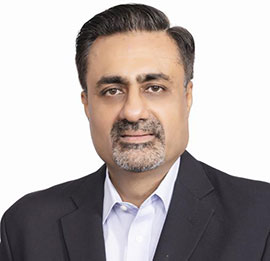
Workshop on Sustainability
Workshop on Sustainability
The Joint Workshop on Sustainability, organized by the World Patients Alliance (WPA) along with partner International Hospital Federation and its Geneva Sustainability Center, commenced with an illuminating introduction by Andrew Spiegel, the Chair of WPA. He provided a comprehensive overview of the WPA’s global mission to empower patients and ensure access to safe, quality, and affordable healthcare. With 462 member organizations spanning 123 countries, the WPA’s commitment to inclusivity was evident, offering a platform for patients to actively engage in all facets of healthcare. Mr. Spiegel then set the agenda for the workshop, outlining key topics such as sustainability in healthcare and patient involvement. The subsequent report delves into the detailed presentations by Sylvia Basterrechea and Hussain Jafri, shedding light on their insights into climate change, sustainability, and the integral role of patients in fostering eco-friendly practices within the healthcare sector.
Sylvia Basterrechea’s Presentation: Climate Change, Sustainability, and Patient Involvement in the Healthcare Sector
Introduction: The inaugural presentation of the Joint Workshop on Sustainability featured Sylvia Basterrechea, the Program Lead of the Geneva Sustainability Center. Her presentation focused on the intersection of climate change, sustainability, and the role of the healthcare sector in addressing these challenges.
Background: Sylvia Basterrechea provided context on the International Hospital Federation (IHF), a global organization representing over 130 members and connecting with more than 25,000 healthcare organizations worldwide. The IHF envisions a world where healthy communities are served by well-managed hospitals and healthcare services. In 2022, the IHF established the Geneva Sustainability Center to support healthcare services in tackling current and future sustainability challenges, providing leaders with the necessary tools and skills for transformative change.
Climate Change and Healthcare: The presentation began by highlighting the significant environmental impact of the healthcare sector, contributing to 5.2% of global net emissions, as reported in The Lancet Countdown (2022). Visual aids, including a World Emissions and Carbon Map, emphasized the global scale of the issue. The speaker underscored the critical link between climate crises and health crises, exploring vulnerability factors, exposure pathways, and health system capacities.
The presentation included a quote from Dr. Maria Neira, WHO Director of Public Health, emphasizing the high health burden of polluting energy sources. Dr. Neira framed climate change mitigation as an opportunity rather than a cost, stressing the importance of considering health in the transition to cleaner energy, transport, and food systems.
Strategies for the Healthcare Sector: Sylvia Basterrechea outlined decarbonization pathways and emphasized the need for healthcare to integrate climate change considerations into its delivery. The presentation articulated sustainability objectives for the healthcare sector, advocating for low-carbon, equitable, and resilient healthcare. This included transforming operational and clinical practices, fostering committed leadership, and engaging collaboratively to enhance community health outcomes.
Tools and Examples: The Geneva Sustainability Accelerator Tool was introduced as a practical resource for healthcare organizations. Specific examples were provided, such as recognizing the health benefits of low-carbon clinical care and prescribing practices, integrating sustainability into hospital design, and engaging patients and communities through participatory sustainability strategies. The report highlighted initiatives like investing in communities, reinforcing environmental sustainability commitments, and partnering across sectors for mutual benefits.
Conclusion: In conclusion, Sylvia Basterrechea’s presentation elucidated the urgent need for the healthcare sector to address climate change and embrace sustainability. The Geneva Sustainability Center’s role in equipping healthcare leaders and the actionable strategies presented serve as a roadmap for hospitals facing the challenges of today and tomorrow. The examples showcased underscored that sustainability is not only a responsibility but also an opportunity for hospitals to enhance patient care and community well-being. The Joint Workshop on Sustainability provides a crucial platform for ongoing discussions and collaborations aimed at achieving a sustainable and resilient healthcare sector.
Hussain Jafri’s Presentation: Sustainability in Healthcare and How Patients Can Contribute to Environmental Sustainability
Introduction: Hussain Jafri, Founding Director of the World Patients Alliance (WPA), delivered a compelling presentation on “Sustainability in Healthcare and How Patients Can Contribute to Environmental Sustainability." He shared key insights during the session, highlighting the importance of sustainability in healthcare and the role patients can play in promoting eco-friendly practices.
Overview: Hussasin covered various aspects related to sustainability, focusing on its definition, relevance in healthcare, the environmental impact of the healthcare sector, and the integral role of patients in fostering sustainability. The talk concluded with key takeaways emphasizing collaboration and partnerships for a sustainable healthcare future. The presentation began with an explanation of environmental sustainability and its importance in the global context. Hussain highlighted the interconnectedness of sustainability with various environmental factors, establishing a foundation for the subsequent discussion.
Sustainability in the Healthcare Sector: The environmental impact of the healthcare sector was thoroughly examined, encompassing areas such as waste management, energy consumption, emissions, and climate change. Hussasin stressed that sustainability in healthcare is a collective responsibility involving everyone, including patients.
Ways Patients Can Contribute: The core of the presentation centered on the active role patients can play in promoting sustainability. Specific actions were outlined, including proper medication disposal, reduction of plastic waste, adoption of telehealth services, use of eco-friendly transportation, medication adherence, engagement in preventive care, advocacy for eco-friendly practices, and responsible resource use.
Positive Impacts of Sustainability in Healthcare: Hussasin elucidated the positive outcomes of integrating sustainability in healthcare practices. These encompassed reduced healthcare costs, healthier communities, long-term resource preservation, improved air and water quality, and enhanced patient experiences. The impact of sustainability on patient outcomes was also discussed, emphasizing reduced exposure to harmful substances, improved air quality for respiratory patients, and the promotion of overall well-being.
Key Takeaways: The presentation concluded with key takeaways, reinforcing the vital role of sustainability in healthcare. Patients were acknowledged as significant contributors, and the importance of small changes for substantial environmental benefits was underscored. Collaboration and partnerships were emphasized as essential components for the successful integration of sustainability practices in healthcare.
Conclusion: Hussain Jafri’s presentation provided a comprehensive exploration of sustainability in healthcare, focusing on the active participation of patients. The detailed insights into patients’ roles and the positive impacts of sustainability on healthcare and patient outcomes served as valuable guidance. The call for collaboration and partnerships highlighted the need for collective efforts to build a sustainable and environmentally responsible healthcare sector. The presentation laid a foundation for ongoing discussions and initiatives aimed at fostering sustainability in the global healthcare landscape.
The Joint Workshop on Sustainability, orchestrated by the collaborative efforts of the World Patients Alliance and the International Hospital Federation, concluded with a dynamic Q&A session moderated by Sylvia Basterrechea and Sara Perazzi. This allowed for a nuanced exploration of key insights presented by speakers Sylvia Basterrechea and Hussain Jafri. The workshop’s closure featured a comprehensive wrap-up, key messages, and a conclusive summary delivered by Sara Perazzi, the Senior Partnership and Program Manager of the International Hospital Federation. The amalgamation of diverse perspectives, ranging from patient involvement to environmental sustainability in healthcare, not only underscored the critical intersections of these themes but also laid the foundation for ongoing collaborative efforts and initiatives within the global healthcare landscape.
The workshop’s success lies in its potential to inspire actionable change and foster sustained commitment to creating a more sustainable and patient-centric future in healthcare.
Agenda

Speakers





